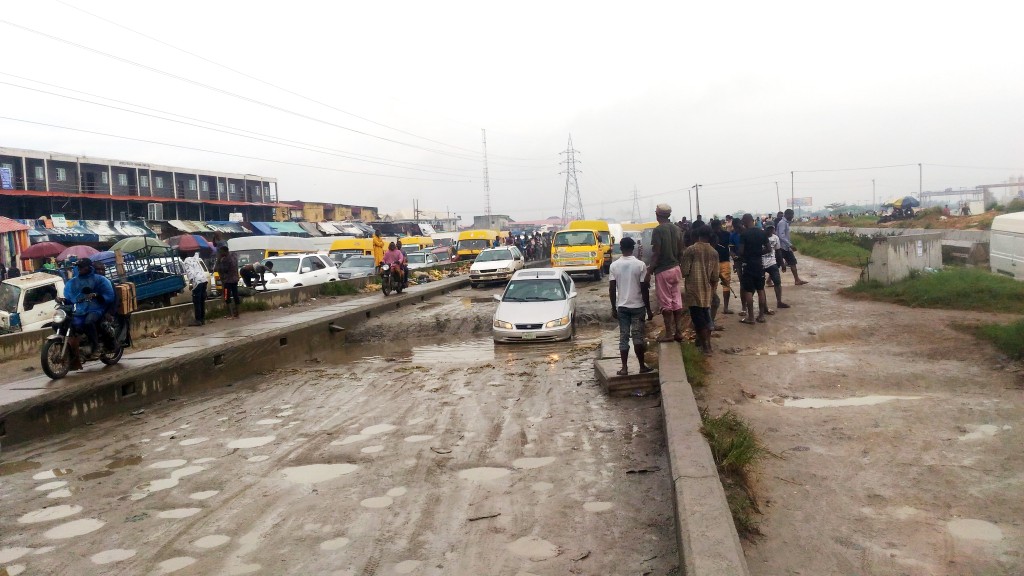Barely few days after a Lagos Federal High Court ruled that oil drilling rig fall within the cabotage regime which means that the NIMASA can collect revenue on rigs as it does on other sea vessels, the Court of Appeal also sitting in Lagos, has ruled that an oil drilling rig is not a vessel and therefore, not engaged in coastal trading (cabotage) within the meaning of sections 2 and 5 of the Cabotage Act.
The appellate court consisting of a panel of three Justices namely; Garba Lawal, Obaseki-Adejumo and Kolawole delivered the judgment in the case of Transocean Support Services Nigeria Limited and three others Vs NIMASA and Minister of Transport (CA/L/503/2016) clarifying the law on whether a rig is a vessel under the Coastal and Inland Shipping (Cabotage) Act 2003.
In a unanimous decision, the Court of Appeal held that an oil drilling rig was not a vessel and was not engaged in coastal trading (Cabotage) within the meaning of sections 2 and 5 of the Cabotage Act.
It also held that a drilling rig was not one of the vessels requiring registration pursuant to section 22(5) (m) of the Cabotage Act and consequently that the listing of drilling rigs in paragraph 9.1.1C of the Cabotage Guidelines 2007 as one of the “foreign vessels” eligible for registration and thus liable to pay 2% cabotage surcharge was unlawful and invalid.
Business Hilights recalls that trouble had started when companies began to query the applicability of the Cabotage Act to drilling rigs (especially jack up rigs and drill ships) and the liability of drilling services providers to contribute 2% of the nominal amount of drilling contracts performed by them into the Cabotage Vessel Financing Fund pursuant to sections 42 and 43 of the Cabotage Act.
The major confusion seems to be emerging from 2007, when the then Minister of Transportation purported to issue a guideline for the implementation of the Cabotage Act (Cabotage Guidelines 2007) in which he listed drilling rigs in paragraph 9.1.1C of the Cabotage Guidelines 2007 as one of the “foreign vessels” eligible for registration and thus liable to pay 2% cabotage surcharge.
However, pursuant to Cabotage Guidelines 2007, Nigerian Maritime Administration and Safety Agency (NIMASA) appointed debt collection agents whom NIMASA directed to issue cabotage surcharge demands to companies involved in drilling operations in Nigeria. A number of drilling companies challenged the demand notices issued by NIMASA’s debt collectors by issuing legal proceedings against NIMASA.
In Noble Drilling v NIMASA, Justice Abutu held that drilling rigs were not vessels for the purpose of the Cabotage Act, were not engaged in cabotage and were not among the vessels listed in section 22(5) of the Cabotage Act, but his decision was reversed by the Court of Appeal on procedural grounds, namely that Noble Drilling had not complied with the requirement to seek and obtain leave for issuance and service of process out of jurisdiction.
Recall that in Seadrill Mobile Units Nigeria Limited v Minister of Transport, Justice Babs Kuewumi took the opposite view. He held that drilling rigs were vessels under the Cabotage Act, were engaged in cabotage and were caught by section 22(5) (m) of the Cabotage Act.
Justice Obaseki-Adejumo who delivered the lead judgment, stated as follows: “It is therefore abundantly clear that only vessels engaged in coastal trade are liable to pay into the Fund the 2% of the contract sum performed by such vessel. I dare ask, is a drilling rig, like the one owed and/or operated by the Appellants a vessel within the definition under the Cabotage Act? Without any modicum of doubt, by the definition under the Act, a vessel must be designed, used or capable of being used solely or partly for marine navigation and used for the carriage of persons or property on, through or under water without regard to method or lack of propulsion. Unless a drilling rig falls within this definition and/or is expressly stated to be among the machineries contained in section 22(5) (a) -(m), same cannot be deemed to be a vessel eligible for registration under Section 22(1) of the Cabotage Act and liable to pay a surcharge of 2% of the contract sum performed by such vessel engaged in coastal trade.
He ruled that “As I have found that drilling rigs do not fall within the definition of vessels under the Act, and in particular, section 22(5)(m) of the Cabotage Act, it follows that the attempt by the Minister of Transport to list Rigs under the head of “Foreign Vessels” in Paragraph 9.1 of the Cabotage Guidelines, so as to make them liable to pay 2% surcharge, is not proper. The essence of the Guideline as a subsidiary legislation is to give effect to the principal legislation and not to deviate from same; it cannot expand or curtail the provision of the substantive statute.”
The Court of Appeal further also held that the limitation period contained in the Public Officers Prosecution Act did not apply to the making of the Cabotage Guidelines, with the result that the Guidelines could be challenged outside the 3 month time limit for challenging administrative acts of public officers.
Efforts to get the views of NIMASA on the latest Appeal Court clarification failed.









